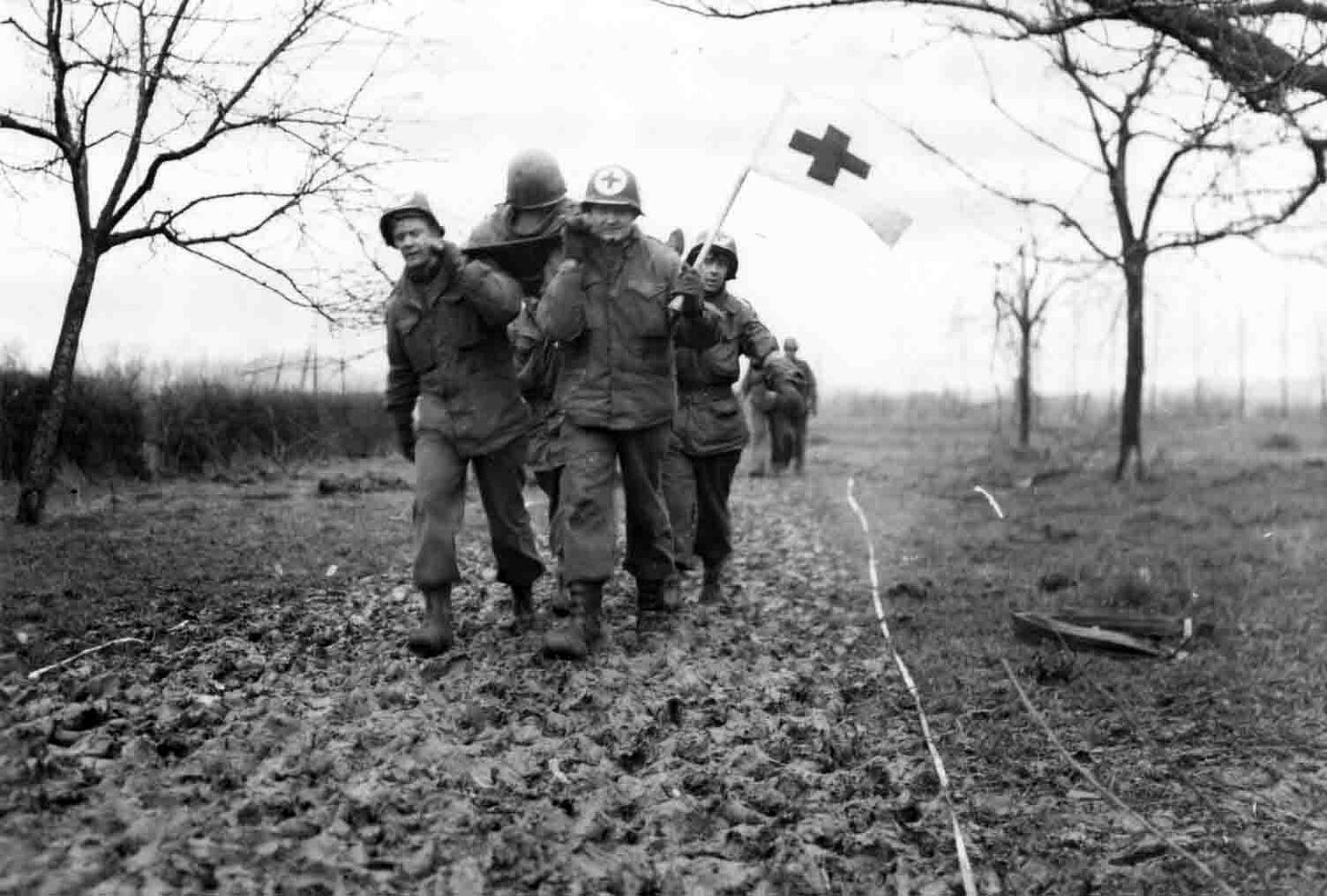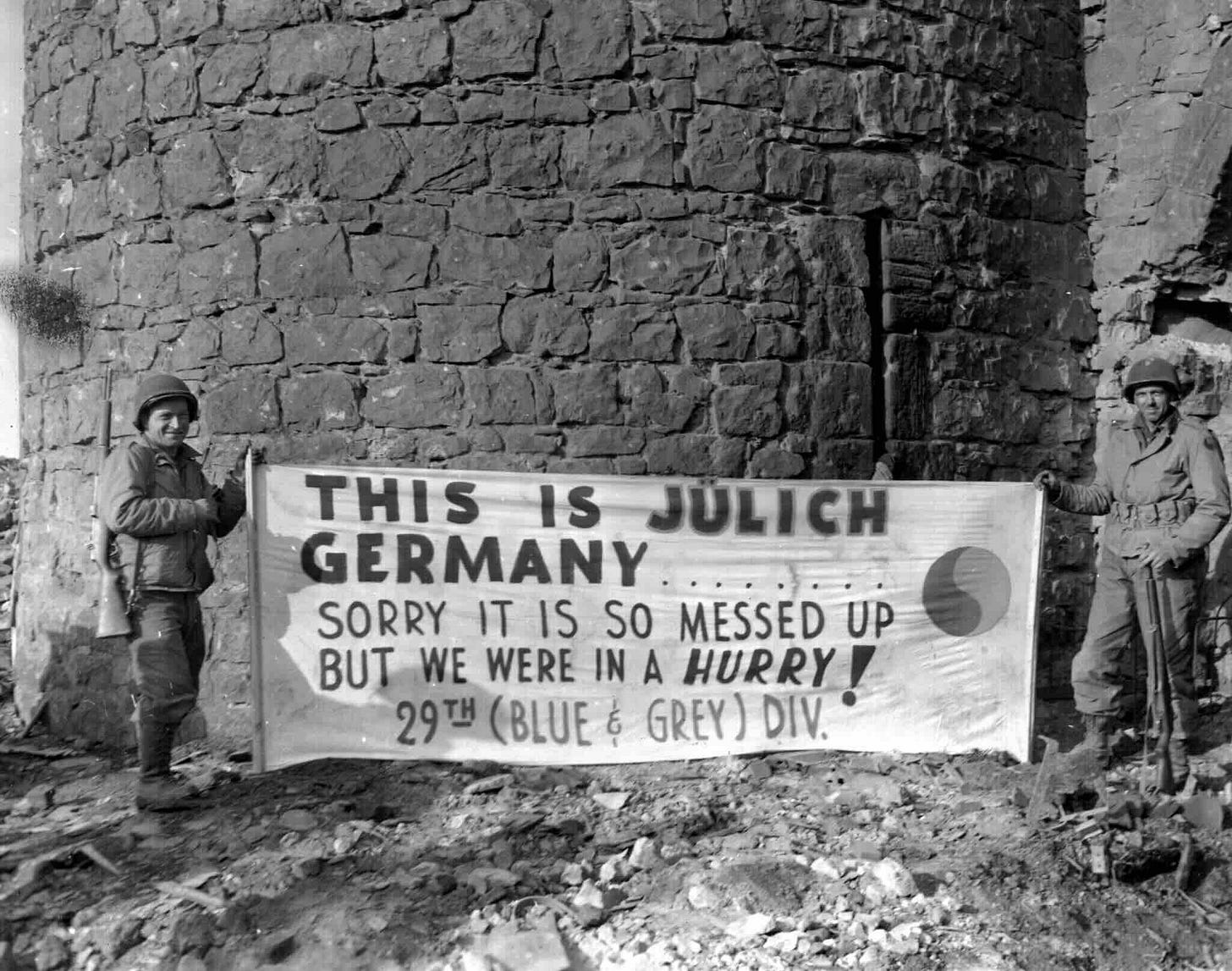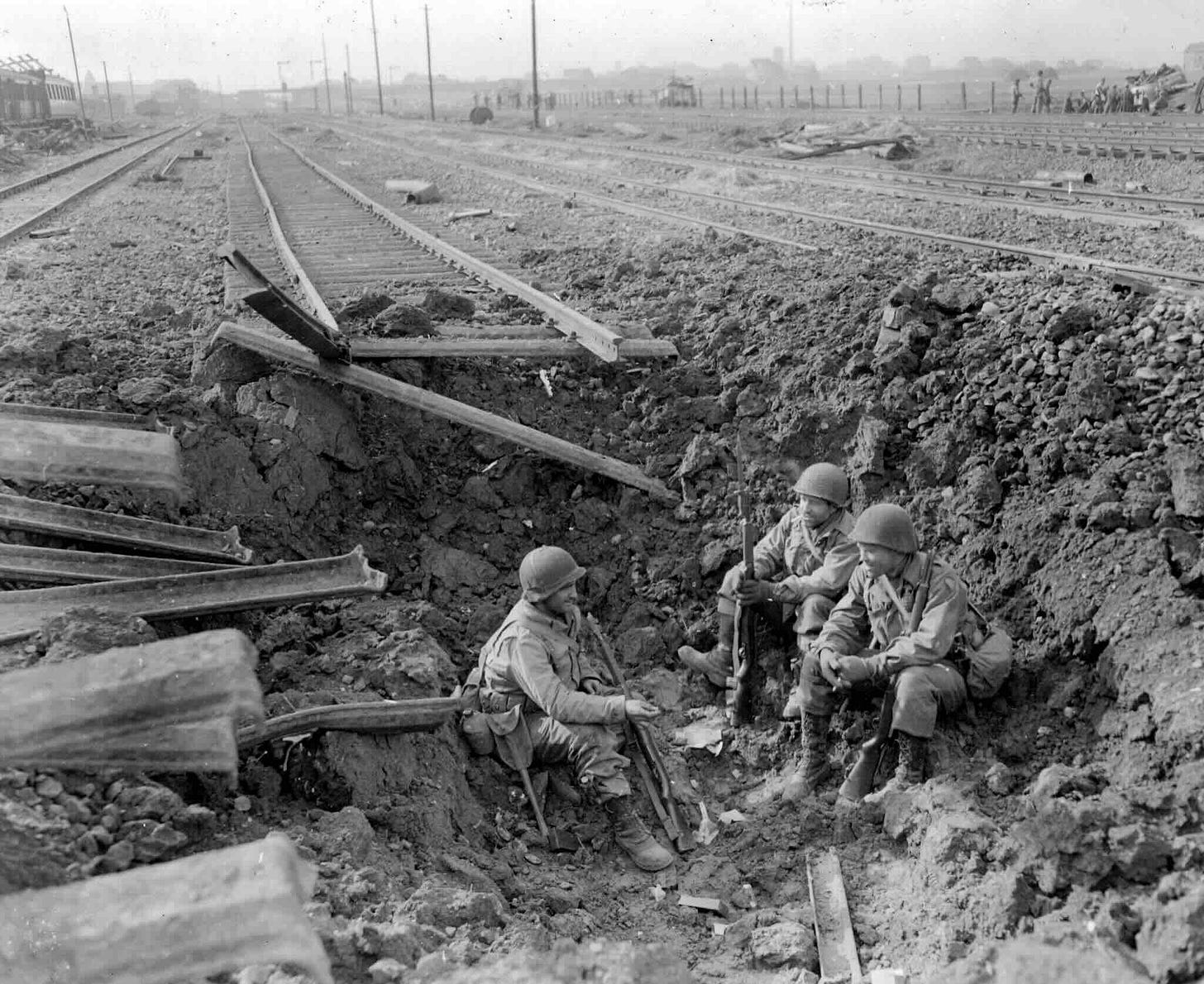First kill in Germany
26th February 1945: A US Infantryman has to come to terms with the reality of killing the enemy



Raymond Gantter1 was one of hundreds of thousands of "replacements" - young US infantrymen who only joined their unit when they arrived in France or Germany. They often had a difficult time assimilating into groups of more experienced soldiers. Gantter was one of the lucky ones, a relatively older man who soon found his feet and moved rapidly through the ranks in the remaining few months of the war.
Late February saw Gantter occupying a ruined house on the front line in Germany as his squad awaited a German counter-attack:
It’s hard to write this next part, because this is where I killed a man. The first one. The first one I was sure of.
It ought to be told simply, because it’s important that you should understand what it’s like — how you feel when you have trapped a small, running creature between the cold sights of a deliberate gun and pulled the trigger, and suddenly the creature has stopped running and is lying there, and now it’s a man and his body is naked and soft and crumpled.
It ought to be told without hint of boast, and yet so that you would see there’s something of the bragging boy in the sense of achievement; it ought to be told without sentiment, and yet so you would see what a big thing it is.
I saw a German soldier rise from behind the protective shoulder of the ridge and start to run to the rear, sprinting across the open field toward the hills. Perhaps he was a runner, a messenger - I cannot remember that he carried a weapon.

It occurred to me later that he must have been young and very green, because he ran in a straight line, an easy course to follow with the sights of a rifle. He had unbuttoned his over-coat for greater freedom in running, and the skirts flapped like huge blue wings around his legs.
He was a moving dot of blue, a clumsy blue object to be stalked deliberately... now, impaled within the sights, the blue coat was enormous, presenting itself to my squinted eye like a cloud, like a house, like a target painted solid blue on the firing range at Camp Wheeler.
I squeezed the trigger and he fell. He did not move again, and the skirts of the blue overcoat made a patch of unnaturalcolor in the field where he lay.
For a moment I was triumphant and my eyes lingered on my prize, confirming it. There he was! ... He was there, still lying there, and it wasn’t a game any longer. He hadn’t risen to his feet, dusted himself off, and thumbed his nose at me gaily before starting to run again. He lay there, quiet now, and he hadn’t moved, and I laid my rifle on the floor of the attic - carefully, because of the plaster dust - and put my head in my hands. I wanted to be sick, but there wasn’t time to be sick.
And I thought, Poor bastard ... he was hungry and cold, too ... scared and homesick and missing his people and tired of war. And I was sick and ashamed because I never hated him, never him specifically, and I never wanted to kill him.
And it was an evil and an ugly thing that this man, this particular Hans or Ludwig or Emil, should lie dead on a field because I had willed it; it was an evil and an ugly thing that this particular man should never again hear music or feel the hands of his children upon his face.
Then I picked up my rifle and went back to my job. The fight lasted throughout the day, and other men in blue-gray went down, not to move again, but their falling did not hit me as a personal thing. They were moving targets, that was all. But again and again my eyes turned back to the figure lying quiet in the stubble, the blue overcoat like wings beside him.




